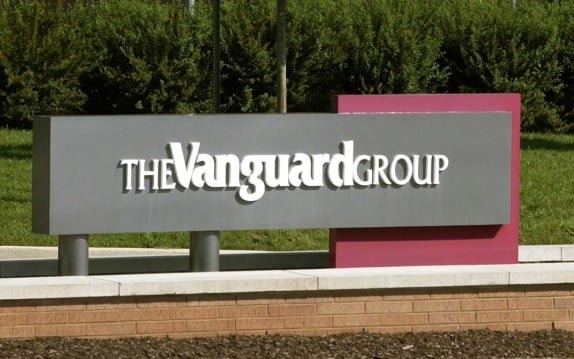The Vanguard Group Inc. is attracting assets — and advisers — to yet another barely advertised program that puts funds together in client portfolios.
In what's sometimes called the exchange-traded fund strategist business, Vanguard is building model portfolios of its own funds and selling them to investors through financial advisers.
The program, called Vanguard ETF strategic model portfolios, hasn't been widely promoted, but already has a large independent broker-dealer client, Cambridge Investment Research Inc., as well as the outsourced investing platform Envestnet Inc.
About $1.6 billion in assets follow the program, and 3,753 advisers are using Vanguard models, according to the company.
“It's in direct response to demand from advisers, and to some degree advisers wanting to streamline and outsource,” said Mike Lucci, a senior sales strategist at Vanguard. “For us, the value proposition is all about beta. It's about low-cost, broadly diversified beta.”
The program's success comes after the firm built a pilot of its partially automated investment offering,
Personal Advisor Services, by more than $3 billion last year.
Both programs push Vanguard deeper into the business of delivering investment portfolios, or asset-allocation guidance, to advisers and clients, rather than just managing funds themselves.
Envestnet works with 24,887 advisers. Cambridge ranks ninth among U.S. independent broker-dealers by revenue, according to
InvestmentNews data.
Those firms handle the execution of the models developed by Vanguard, according to Mr. Lucci.
“There are certainly advisers — we were talking to one earlier today — [whose] core belief is in a passive model,” said Colleen Bell, first vice president for retirement and wealth strategies at Cambridge. “The conversation around fees has become more sensitive and people do look for low-cost solutions that complement their own philosophy.”
Beyond providing access to its more than 3,000 “registered representatives,” Vanguard's alliance with Cambridge could also move ETFs deeper into
a space that hasn't been particularly welcoming: the retirement-plan market.
Ms. Bell said the firm is offering the Vanguard ETF models to those plans through its retirement-plan serving division.
The portfolios are often quite simple, made up of as few as four ETFs and a money-market fund. Vanguard doesn't charge a fee for the service, and once the cost of the underlying funds is included, the average expenses of the models currently range between 0.07% and 0.14% of assets annually.
The most popular portfolio is one of the simplest: 60% stock exposure, 40% bonds. That portfolio has $298.5 million in assets: It returned 6.92% last year; 11.06% over three years; and 9.26% over five.
The simple portfolios stand in stark contrast to other ETF strategists, who also trade on the popularity of ETFs but generally offer highly tactical strategies, many positioned as guarding against risks in financial markets.
Vanguard recently became the first large ETF manager to send performance reports on its 25 strategies to be ranked by Morningstar Inc., alongside once-high-flying managers such as F-Squared Investments Inc., Windhaven Investment Management and Good Harbor Financial. (Vanguard is 16th on that list.)
F-Squared has been dogged by
challenges with regulators; Charles Schwab Corp.-owned Windhaven by
the departure of its founder last year, and Good Harbor by
faltering performance.
Because those firms are also clients of ETF businesses, money managers such as Vanguard and BlackRock Inc., owner of the largest ETF business, have been reluctant to directly compete by offering tactical models. But they have increasingly offered more “strategic” asset allocation models.
“Strategic has a range of definitions in the marketplace. If there was a pendulum on strategic, these are way out on the strategic end,” said Mr. Lucci. “That's what makes us an obvious complement to other strategists.”







